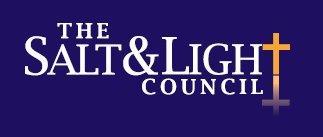In his book, “Don’t Call Me Christian”—A Truly Jewish Story, Messianic Jewish Rabbi Paul Liberman tells of a stranger on a bus who challenged him back in the 1970s about the Messiah. Paul literally ran off the vehicle to escape words that convicted his belief system. He then gave up the convenience of a daily, chartered ride into work to avoid that man.
As I reflected recently on my loved ones who need to know the Lord, Paul Liberman’s brief interlude on the bus came to mind. I had lifted a quick request for God to send someone to tell them about Jesus. “Ouch,” I thought, realizing the many years passed since I heard such a report—and even then, the person sharing often fell short of what they professed to believe. Seems like witnessing—both in word and deed—somehow went out of fashion.
Today, we believers do our witnessing in groups. We stand en masse at statehouses, praise Jesus in stadiums, evangelize through movies, and have endless conference prayer calls. We hold up signs that preborn babies must see life, defend the right of Israel to exist, and rally our insistence that marriage is only between one man and one woman. Those things are true and needed. But, do they move our neighbors, and in what direction?
Can any of this succeed without the one-on-one, personal contacts where people look into our eyes and see the compassion and love of God? And, can that succeed unless we are spending time with God building that relationship, so we have something of value to share?
Maybe we lost our voice because it never matured in the first place. Maybe we are finally taking responsibility and asking God to build His character inside our own jars of clay. If so, then perhaps we do have something of value to share one-on-one. Then, we can stop expecting our spiritual leaders to do all the heavy lifting on Sunday mornings from the pulpit.
We blame our pastors when they invite people to know Jesus but choose to defer on the social issues that tear at the fabric of our nation. Yet, if the two are to be merged—sharing the Good News and applying Biblical truth not as an historical document, but impacting our ability to love our neighbors as ourselves—pastors need to know we not only stand with them, but that God is building His same nature and courage within us.
My friend Barbara, who travelled cross-country to help prepare her daughter’s wedding, shared something that moved me. Barbara, visiting in Massachusetts, had her first glimpse of the rampant heroin addiction facing the state. Her future son-in-law is in law enforcement. He told Barbara officers now carry drug-overdose equipment right in their squad cars. She explained that when the hands of blue-collar workers went idle as the mills closed, people turned to dope instead of to God. The streets had grown silent—the hope of God extinguished—in that state.
Nationally, the silence took root in the 1950s, as the government threatened church tax exemptions. The void grew in the 1960s as people of faith—daring to speak up—were ridiculed, secularists expelled prayer from schools, and drugs infused music with mystical enchantments. In the 1970s, the Supreme Court overturned the sanctity of life in the womb, and the sexual revolution and feminist movements divorced America from the sanctity of God in the home.
Euphemisms followed, neutralizing words that communicate. “Venereal disease” became “STDs.” “Abortion” became “choice.” Slowly, ridicule turned into bullying. “Bigots.” “Fanatics.” “Right-wingers.” Today, the Church has already gone largely underground, confined to buildings, home churches, conferences and conference calls. We communicate—and witness—through Facebook.
I am no different. Having soundly taken a verbal and emotional whipping in my early Christian years, I turned to “silently testifying through my life.” Today, people I love know where I stand, but they avoid asking, “What’s new?” Or, “How is your ministry going?” And, so, I wait…and I wait…for you. For someone to breach the stillness—to tell my loved ones something they refuse to hear from me.
Paul Liberman ran off a bus, but he could not shake the words of a man. God took that small interaction and it rubbed at Paul’s worldview. Paul started to notice a pattern in his life. Slowly, a face appeared—the one he was studiously trying to avoid—the Messiah, and it was Yeshua. Paul started on a quest to find others who knew what he had found, and discovered he was not alone; God was already at work among other Jewish people.
Not willing to step out of Judaism, though, they stood firm and the modern Messianic Jewish Movement began to take shape. Today, the Messianic Movement has matured and gained a worldwide identity. See, something good began in the 1970s. While our collective conscience stood down, one man, noticing his neighbor in the seat beside him, spoke up.
Today is not yesterday. God loves our conferences and prayer conference calls. He loves our rallies. He is building an army—the army of God surrounded by a great cloud of witnesses. Believers are seeking the Lord; we are hearing His heart. We are waking up. We are maturing with testimonies that move beyond the first moments of our salvations. We can now share about deep, living, vibrant relationship with God. The Holy Spirit is becoming increasingly evident in our characters, our words, and our works.
Saints, may the streets not grow silent anymore. God knows the world is waiting for our message. Massachusetts is waiting for our message—go, Barbara, go! My loved ones are waiting for our message. The time to speak has come again.


